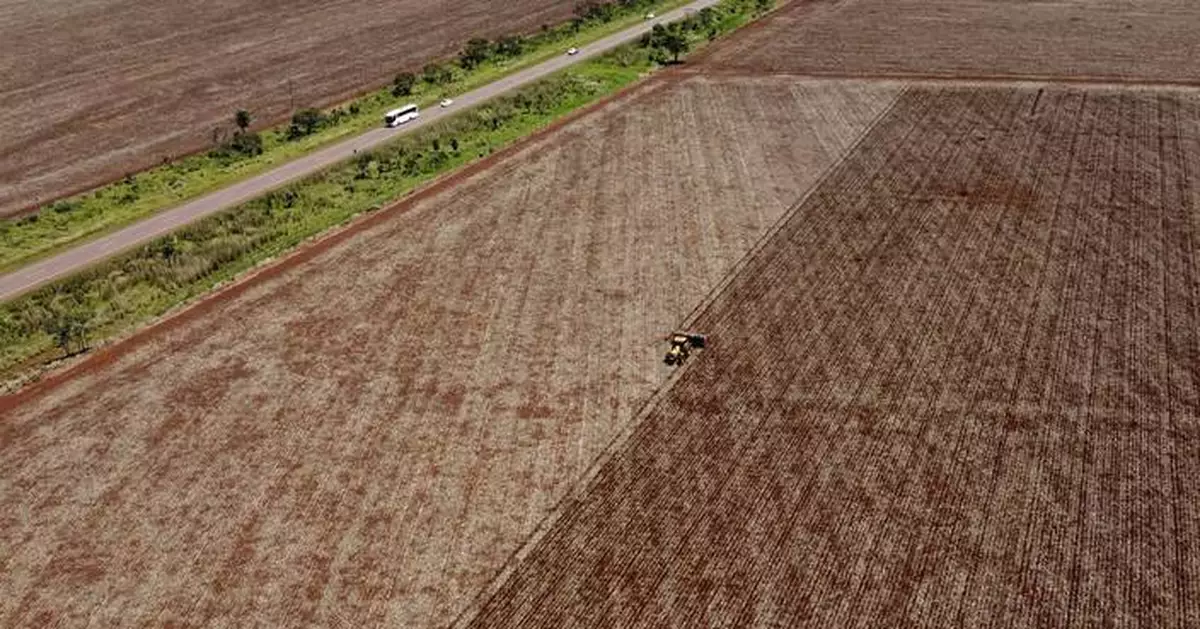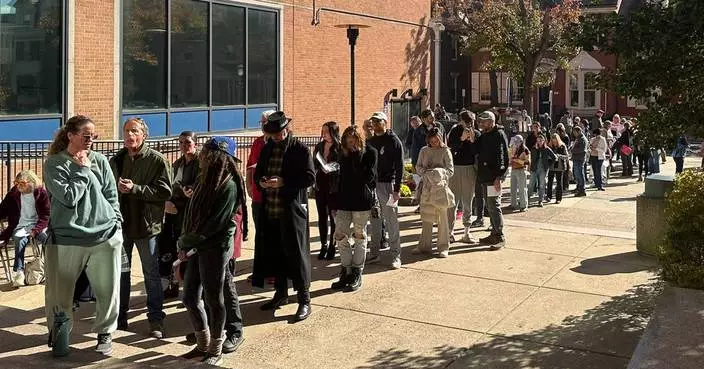AGUA CLARA, Brazil (AP) — A historic agreement that's helped curb deforestation in Brazil’s Amazon for nearly two decades suffered a major blow after Mato Grosso, the country´s largest soybean-producing state, passed a law ending incentives for participating processing and trade companies.
The law passed last week was designed to void the Soy Moratorium — a 2006 deal in reaction to a Greenpeace investigation that linked soy produced in illegally deforested areas to U.S. commodities giants Cargill, Bunge and ADM. Under pressure, the companies agreed at the time not to buy soy produced in areas cleared after 2006. The date was later revised to July 2008.
Several studies in recent years have shown the moratorium contributed to the Amazon’s preservation. A 2020 study in the journal Nature Food found that the agreement, in combination with public policies, contributed to the steepest reduction of deforestation recorded in Brazil’s Amazon, between 2003 and 2016.
Backed by soybean producers and most of Mato Grosso´s lawmakers and mayors, the new legislation cuts tax benefits to companies that participate in any agreement that imposes restrictions on expanding agricultural activities into areas that can be legally deforested. Governor Mauro Mendes signed the law Oct. 24. It goes into effect on Jan. 1, 2025, but regulations are pending.
It states that only the illegally deforested area of a farm will be prevented from selling soy. In other words, if a 4,000-acre (1,618-hectare) property clears 200 acres (81 hectares) unlawfully, just the output from that specific area is blocked. Specialists warn that such refined monitoring is technically challenging, if not unfeasible.
Under the moratorium, property with any post-2008 deforestation is forbidden altogether to sell its crops, regardless of whether the deforestation is legal.
Supporters of the new state law have long claimed the moratorium´s 2008 limit is stricter than Brazilian legislation that allows the deforestation of up to 20% of a large rural property in the Amazon.
“We will not rest as long as the moratorium harms even one producer," the Mato Grosso soy producers president Lucas Costa Beber said in a celebratory statement. "And until this agreement is extinct, the trading companies will not have a peaceful sleep."
Environmental nonprofits and the entity representing leading soybean trade and processing companies have criticized Mato Grosso´s initiative.
“The law is a setback,” said Bernardo Pires, sustainability director of the Brazilian Association of Vegetable Oil Industries (Abiove), which supports the moratorium. “Companies committed to sustainability should receive twice as many benefits instead of losing them.”
Abiove members, which include Cargill, Bunge and ADM, buy over 90% of Mato Grosso´s soy production. The state tax benefits amount to $308 million a year.
Pires said the moratorium´s zero deforestation policy is a market demand. "Our European customers demand not to consume any products associated with deforestation,” he said.
Cristiane Mazzetti, coordinator of the forests campaign at Greenpeace Brazil, said the law reveals a double standard among politicians connected to agribusiness, who oppose the moratorium as unnecessary yet seek to weaken these same environmental protection.
The new law sparked mixed reactions within President Luiz Inácio Lula da Silva’s government, which has promised zero deforestation by 2030.
André Lima, secretary of deforestation control at the Ministry of the Environment and Climate Change, said that although state governments have the right to choose which economic activities they want to support, it is unconstitutional to withdraw tax incentives from companies that have adopted sustainability and climate criteria aligned with Brazil’s deforestation reduction goals.
“It also goes against the national tax reform guidelines, which have incorporated sustainable development as an important criterion for promoting more and new tax incentives for the green economy,” he told The Associated Press.
Agriculture Minister Carlos Fávaro, however, praised the law. “The project (moratorium) is stricter than the law, and this creates legitimate dissatisfaction among producers,” he told reporters in an event last week.
The Associated Press’ climate and environmental coverage receives financial support from multiple private foundations. AP is solely responsible for all content. Find AP’s standards for working with philanthropies, a list of supporters and funded coverage areas at AP.org.
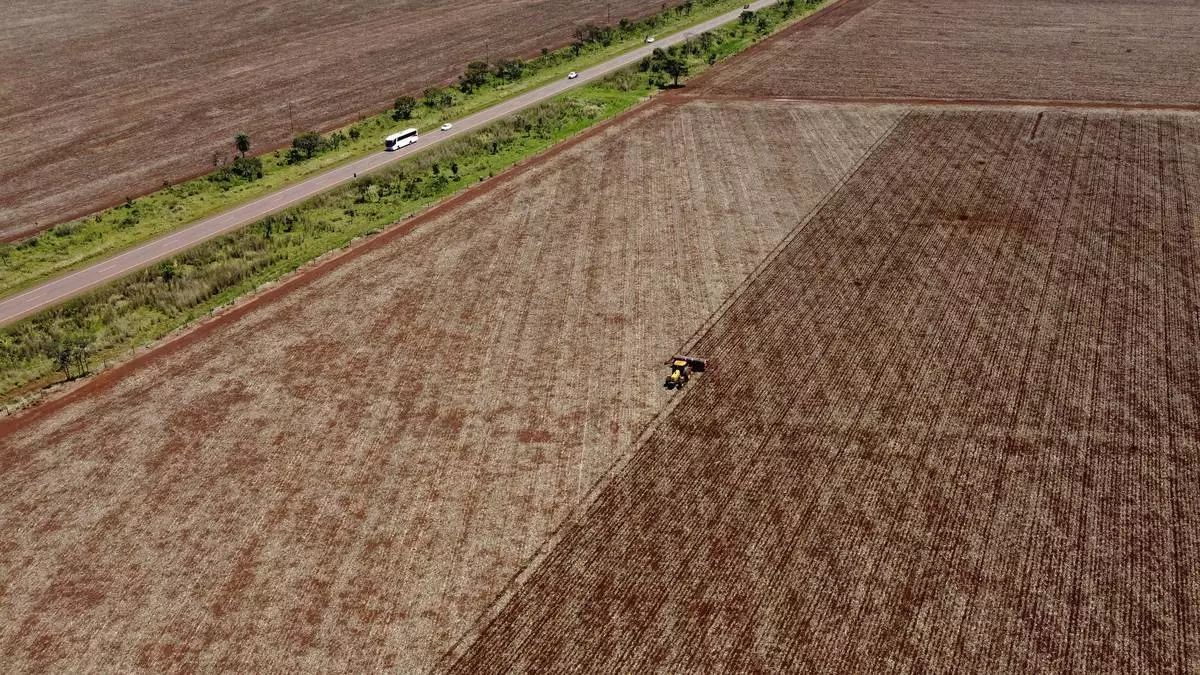
FILE - A machine plants soybeans on a farm in a rural area of Sidrolandia, Mato Grosso do Sul state, Brazil, Oct. 22, 2022. (AP Photo/Eraldo Peres, File)
COLUMBIA, S.C. (AP) — South Carolina put Richard Moore to death by lethal injection Friday for the 1999 fatal shooting of a convenience store clerk, despite a broad appeal for mercy by parties that included three jurors and the judge from his trial, a former prison director, pastors and the his family.
Moore, 59, was pronounced dead at 6:24 p.m.
Moore was convicted of killing the Spartanburg convivence store clerk in September 1999 and sentenced to death two years later. Moore went into the store unarmed, took a gun from the victim when it was pointed at him and fatally shot him in the chest as the victim shot him with a second gun in the arm.
Moore’s lawyers asked Republican Gov. Henry McMaster to reduce his sentence to life in prison without parole because of his spotless prison record and willingness to be a mentor to other inmates. They also said it would be unjust to execute someone for what could be considered self-defense and unfair that Moore, who is Black, was the only inmate on the state’s death row convicted by a jury without any African Americans.
But McMaster refused to grant clemency. No South Carolina governor has reduced a death sentence, and 45 executions have now been carried out since the U.S. Supreme Court allowed states to restart executions nearly 50 years ago.
Unlike in previous executions, the curtain to the death chamber was open when media witnesses arrived. Moore's last words had already been read by Lindsey Vann, his lawyer of 10 years.
Moore had his eyes closed and his head was pointed toward the ceiling. A prison employee announced the execution could begin at 6:01 p.m. Moore took several deep breaths that sounded like snores over the next minute. Then he took some shallow breaths until about 6:04, when his breathing stopped. Moore showed no obvious signs of discomfort.
Vann cried as the employee announced the execution could start. She clutched a prayer bracelet with a cross. Sitting beside her was a spiritual advisor, his hands on his knees palms up. Vann clutched a prayer bracelet with a cross.
Two members of the victims' family were also present, along with Solicitor Barry Barnette, who was on the prosecution team that convicted Moore. They all watched stoically.
Afterward prison spokeswoman Chrysti Shain read his last words at a news conference.
“To the family of Mr. James Mahoney, I am deeply sorry for the pain and sorrow I caused you all,” he said. “To my children and granddaughters, I love you and am so proud of you. Thank you for the joy you have brought to my life. To all of my family and friends, new and old, thank you for your love and support.”
His final meal was steak cooked medium, fried catfish and shrimp, scalloped potatoes, green peas, broccoli with cheese, sweet potato pie, German chocolate cake and grape juice.
Three jurors who condemned Moore to death in 2001, including one who wrote Friday, sent letters asking McMaster to change his sentence to life without parole. They were joined by a former state prison director, Moore's trial judge, his son and daughter, a half-dozen childhood friends and several pastors.
They all said Moore, 59, was a changed man who loved God, doted on his new grandchildren the best he could, helped guards keep the peace and mentored other prisoners after his addiction to drugs clouded his judgment and led to the shootout in which James Mahoney was killed, according to the clemency petition.
Moore previously had two execution dates postponed as the state sorted through issues that created a 13-year pause in the death penalty, including companies' refusal to sell the state lethal injection drugs, a hurdle that was solved by passing a secrecy law.
Moore is the second inmate executed in South Carolina since it resumed executions. Four more are out of appeals and the state appears ready to put them to death in five-week intervals through the spring. There are now 30 people on death row.
The governor said before the execution that he would carefully reviewing everything sent by Moore's lawyers and, as is customary, would wait until minutes before the execution starts to announce his decision once he hears by phone that all appeals are finished.
“Clemency is a matter of grace, a matter of mercy. There is no standard. There is no real law on it,” McMaster told reporters Thursday.
In an interview for a video that accompanied his clemency petition, Moore expressed remorse for the killing of Mahoney.
“This is definitely part of my life I wish I could change. I took a life. I took someone’s life. I broke the family of the deceased,” Moore said. “I pray for the forgiveness of that particular family.”
Prosecutors and Mahoney's relatives have not spoken publicly in the weeks leading up to the execution. In the past, family members have said they suffered deeply and want justice to be served.
Moore’s lawyers said his original attorneys did not analyze the crime scene carefully and left unchallenged prosecutors' contention that Moore, who came into the store unarmed, fired at a customer and that his intention from the start was a robbery.
According to their account, the clerk pulled a gun on Moore after the two argued because he was 12 cents short for what he wanted to buy.
Moore said he wrestled the gun from Mahoney's hand and the clerk pulled a second weapon. Moore was shot in the arm and fired back, hitting Mahoney in the chest. Moore then went behind the counter and stole about $1,400.
No one else on South Carolina’s death row started their crime unarmed and with no intention to kill, Moore’s current attorneys say.
Jon Ozmint, a former prosecutor who was director of the South Carolina Department of Corrections from 2003 to 2011 and who added his voice to those seeking clemency, said Moore's case was not the worst-of-the-worst kind of crime that would usually prompt a death penalty case.
There are plenty of people who were not sentenced to death but committed much more heinous crimes, Ozmint said, citing the example of Todd Kohlhepp, who was given a life sentence after pleading guilty to killing seven people including a woman he raped and tortured for days.
Lawyers for Moore, who is Black, also said his trial was not fair. There were no African Americans on the jury even though 20% of Spartanburg County residents were Black.
Moore’s son and daughter said he remained engaged in their lives. He once asked them about schoolwork and gave advice in letters. He now had grandchildren whom he saw on video calls.
“Even though my father has been away, that still has not stopped him from making a big impact on my life, a positive impact,” said Alexandria Moore, who joined the Air Force at her father’s encouragement.
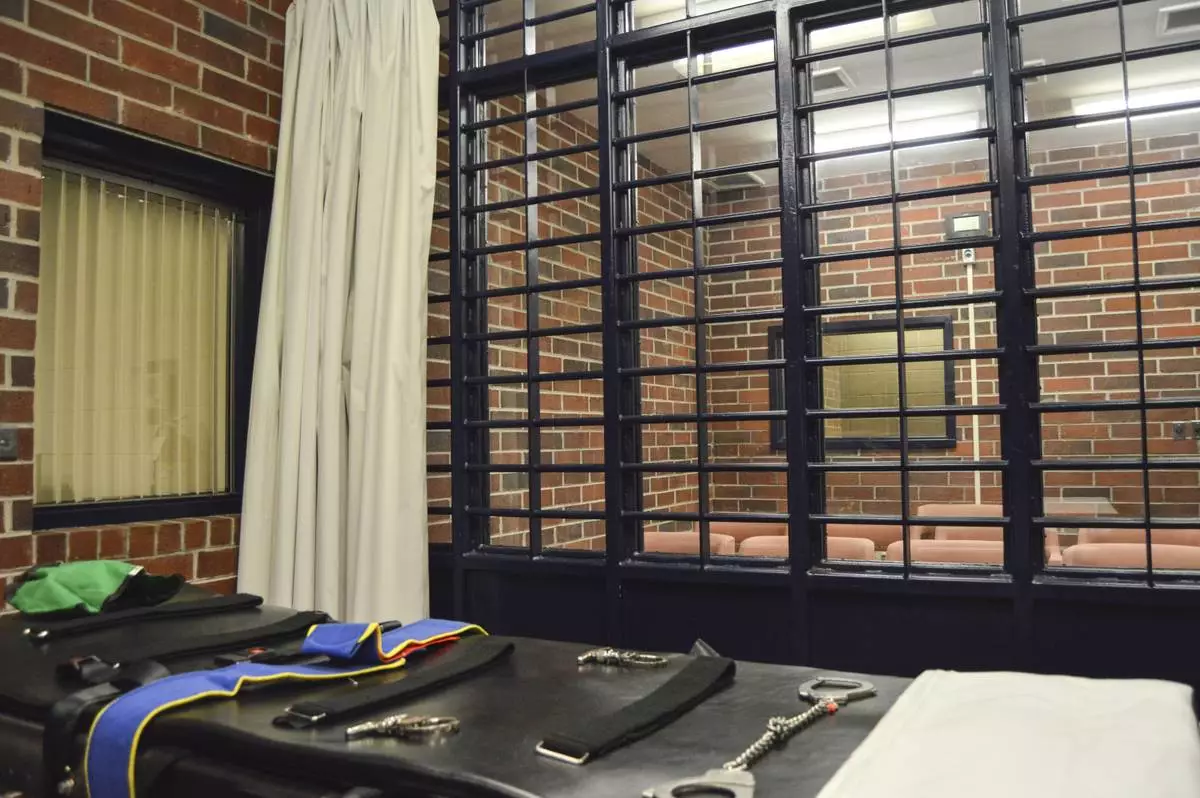
This undated photo provided by the South Carolina Department of Corrections shows the execution room at the Broad River Correctional Institution in Columbia, S.C. (South Carolina Department of Corrections via AP)
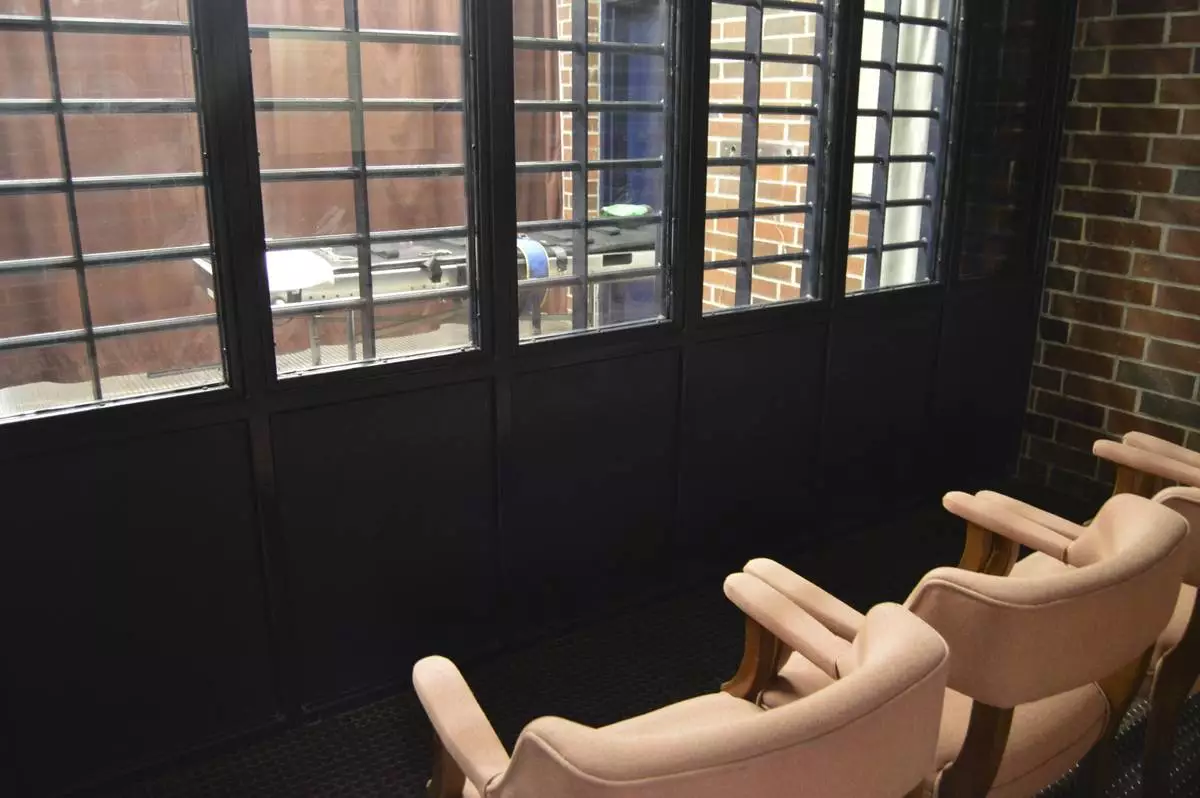
This undated photo provided by the South Carolina Department of Corrections shows the witness room in the execution chamber at the Broad River Correctional Institution in Columbia, S.C. (South Carolina Department of Corrections via AP)
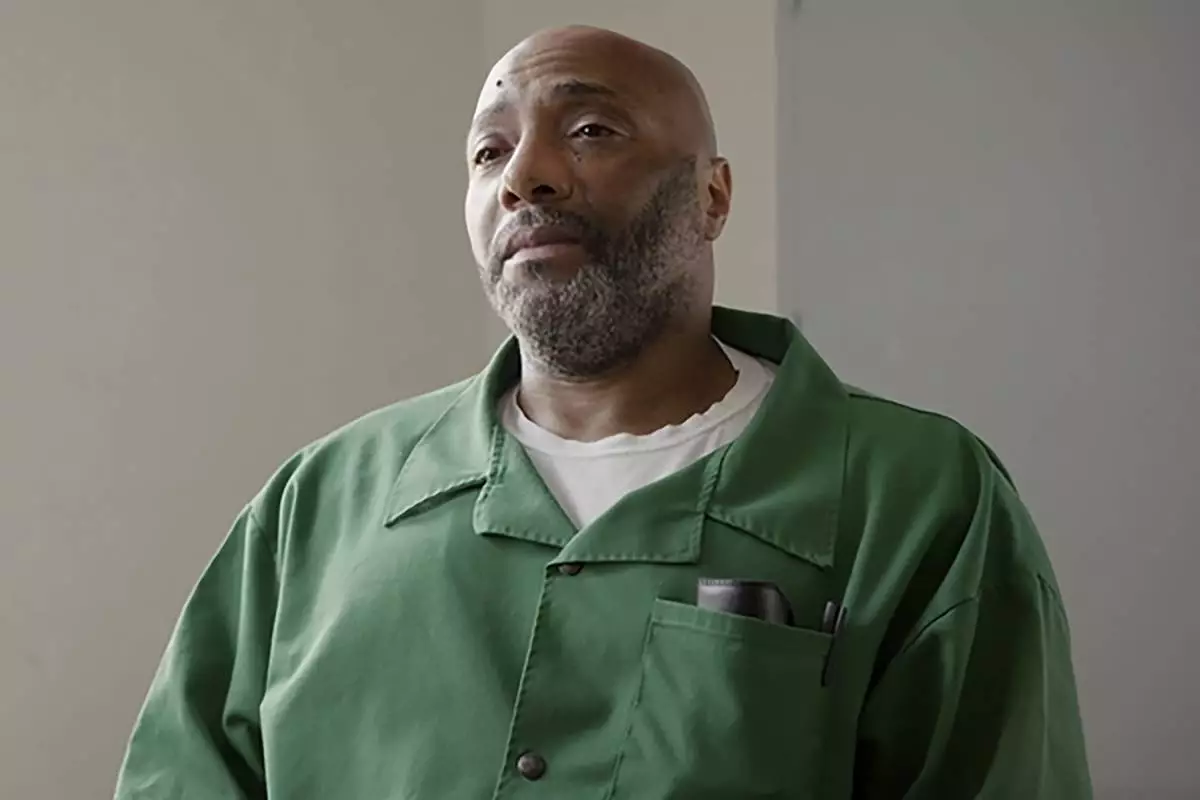
This photo provided by Justice 360 shows death row inmate Richard Moore at Kirkland Reception and Evaluation Center in Columbia, S.C., Aug. 17, 2018. (Justice 360 via AP)



